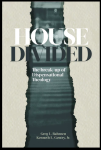HYPERPRETERISM AND MELLO IN ACTS
P MW 2023-009 by Kenneth L. Gentry, Jr.
MW 2023-009 by Kenneth L. Gentry, Jr.
Hyperpreterism is a new theological paradigm that stands against universal historic Christian orthodoxy. It holds that the resurrection of the dead and the final judgment occurred in AD 70 with the destruction of the Jewish temple. Consequently, it also holds that earth history will never end (resulting in God’s tolerating a rebellious universe for ever and ever and ever). One method hyperpreterism uses to seek to topple the 2000 year old eschatology of Scripture is to focus on the Greek word mello.
In two previous articles (PMW 2022-014 and 015) I focused on Acts 24:15, which speaks of the resurrection of both the righteous and the wicked. The word mello appears in this text and is interpreted by hyperpreterists to mean: “there is about to be a resurrection of both the righteous and the wicked.”
In those articles I noted that a study of mello showed that it has several meanings, and does not simply mean “about to,” per the hyperpreterist approach. In fact, Greek scholar Daniel B. Wallace has written an important Greek grammar titled, Greek Grammar: Beyond the Basics: An Exegetical Syntax of the New Testament (1996). On p. 536 of this work he speaks of “the ambiguity of the lexical nuance of mello (which usually means either ‘I am about to’ [immediacy] or ‘I will inevitably’ [certainty]).” An ambiguous term is not sufficient to overthrow the historic Christian faith.
I then cited several leading Greek authorities, showing that because of this ambiguity, mello can mean, as per the Baur-Arndt-Gingrichi-Danker Lexicon: “1. to take place in a future point of time and so to be subsequent to another event, be about to… 2. to be inevitable, be destined, inevitable.” Others agreeing with this assessment include the Louw-Nida Greek-English Lexicon of the New Testament Based on Semantic Domains and the Exegetical Dictionary of the New Testament.
But how do the leading Bible versions translate this verse? And how should someone who does not know Greek evaluate this matter? I will provide a lengthy list of Bible versions and commentaries that avoid translating mello as “about to,” while preferring that it speaks only of futurity. Lone gunners who go against the near-universal consensus of Bible translation committees and world-class commentators should be suspect, especially when claiming that historic Christianity has missed this important issue for 2000 years. And I would not buy any ocean-front property in Arizona from them.
 The Harrowing of Hell (by Jay Rogers)
The Harrowing of Hell (by Jay Rogers)
This postmillennial book examines the power of the Gospel, not only to overcome all opposition, but to rise far above the powers of hell. The term “Harrowing of Hell” refers to idea that Christ descended into Hell, as stated in the Apostles’ Creed.
For more Christian educational materials: www.KennethGentry.com
Acts 17:31 in the standard translations
NASB: because He has fixed a day in which He will judge cthe world in righteousness through a Man whom He has appointed, having furnished proof to all men by raising Him from the dead.”
ASV: Inasmuch as he hath appointed a day in which he will judge the world in righteousness by the man whom he hath ordained; whereof he hath given assurance unto all men, in that he hath raised him from the dead.
Amplified Bible: because He has set a day when He will judge the inhabited world in righteousness by a Man whom He has appointed and destined for that task, and He has provided credible proof to everyone by raising Him from the dead.
Christian Standard Bible: because he has set a day when he is going to judge the world in righteousness by the man he has appointed. He has provided proof of this to everyone by raising him from the dead.
Contemporary English Version: He has set a day when he will judge the world’s people with fairness. And he has chosen the man Jesus to do the judging for him. God has given proof of this to all of us by raising Jesus from death.
English Standard Version: because he has fixed a day on which he will judge the world in righteousness by a man whom he has appointed; and of this he has given assurance to all by raising him from the dead
Good News Transaltion: For he has fixed a day in which he will judge the whole world with justice by means of a man he has chosen. He has given proof of this to everyone by raising that man from death!
Holman Christian Standard Bible: because He has set a day when He is going to judge the world in righteousness by the Man He has appointed. He has provided proof of this to everyone by raising Him from the dead
International Standard Version: Because he has set a day when he is going to judge the world with justice through a man whom he has appointed. He has given proof of this to everyone by raising him from the dead
KJV: Because he hath appointed a day, in the which he will judge the world in righteousness by that man whom he hath ordained; whereof he hath given assurance unto all men, in that he hath raised him from the dead
Lexham English Bible: because he has set a day on which he is going to judge the world in righteousness by the man who he has appointed, having provided proof to everyone by raising him from the dead.
Modern English Version: For He has appointed a day on which He will judge the world in righteousness by a Man whom He has appointed, having given assurance of this to all men by raising Him from the dead.
New Century Version: God has set a day that he will judge all the world with fairness, by the man he chose long ago. And God has proved this to everyone by raising that man from the dead!
New English Translation: because he has set a day on which he is going to judge the world in righteousness, by a man whom he designated, having provided proof to everyone by raising him from the dead.
New International Version: For he has set a day when he will judge the world with justice by the man he has appointed. He has given proof of this to everyone by raising him from the dead.
NKJV: because He has appointed a day on which He will judge the world in righteousness by the Man whom He has ordained. He has given assurance of this to all by raising Him from the dead
NRSV: Because he has fixed a day on which he will have the world judged in righteousness by a man whom he has appointed, and of this he has given assurance to all by raising him from the dead.
RSV: because he has fixed a day on which he will judge the world in righteousness by a man whom he has appointed, and of this he has given assurance to all men by raising him from the dead.
Wycliffe Bible: for that he hath ordained a day, in which he shall deem the world in equity, in a man in which he ordained, and gave faith to all men, and raised him from death [raising him from dead].
With this many Greek scholars and translation committees agreeing on the use of mello in Acts 17:31, we would be rather reckless to accept that this ambiguous term as sufficient to undermining historic Christianity. But there is more.
House Divided: The Break-up of Dispensational Theology By Greg Bahnsen and Ken Gentry
By Greg Bahnsen and Ken Gentry
This book presents and defends Christian Reconstruction theology, particularly theonomic ethics and postmillennial eschatology. It does to by responding to dispensationalism’s social and exegetical theology.
For more educational materials: www. KennethGentry.com
Acts 17:31 in Commentaries
A search of the leading evangelical commentaries on Acts shows that scholars do not adopt the interpretation that Paul was warning that the judgment was “about to” occur in history. Rather, they point out that his argument — which was presented to the Athenians far away from Jerusalem and unattached to Judaism — was that they should repent because the day of judgment coming upon them was sure and inevitable. This was not to be soon, and virtually unnoticeable and with no consequence for the folks in Athens.
For instance, universally-heralded Greek scholar A. T. Robertson, in his Word Pictures in the New Testament (3:291) writes: “Will judge (mellei krinein). Rather, is going to judge, mello and the present active infinitive of krino.”
Consider these the Acts commentaries in these commentary series, as well. Not one if them is even tempted to adopt the nearness interpretation:
Alford, Greek Text Commentary, 199.
Bock in the Baker Exegetical Commentary on the New Testament, p. 570.
Bruce in the New International Commentary on the New Testament, pp. 340–41.
Fernando in the NIV Application Commentary, p. 476.
Hendriksen in the New Testament Commentary, p. 639.
Lenski in the The Interpretation of the Acts of the Apostles, pp. 737–38.
Larkin in the IVP New Testament Commentary, p. 200.
Peterson in the Pillar New Testament Commentary, p. 502.
Meyer in the Critical and exegetical Handbook, p. 338.
Polhill in the New American Commentary, p. 376.
Marshall in the Tyndale New Testament Commentary, p. 290.
Schnabel in the Exegetical Commentary on the New Testament, p. 740
Witherington in the Socio-Rhetorical Commentary, pp. 331–32.
Conclusion
With this many scholarly commentaries agreeing on the use of mello in Acts 17:31, we would be rather reckless to accept this ambiguous term as sufficient to undermining historic Christianity. This should be of special interest to orthodox preterists. This is because one helpful argument for preterism in Revelation is the virtually universal translation of Revelation 1:1, 3 as referring to soon coming events.
[image error]For more information and to order click here.
" data-image-caption="" data-medium-file="https://postmillennialismtoday.files...." data-large-file="https://postmillennialismtoday.files...." class="alignright size-full wp-image-209" src="https://postmillennialismtoday.files...." alt="Navigating the Book of Revelation: Special Studies on Important Issues" />Navigating the Book of Revelation (by Ken Gentry)
Technical studies on key issues in Revelation, including the seven-sealed scroll, the cast out temple, Jewish persecution of Christianity, the Babylonian Harlot, and more.
See more study materials at: www.KennethGentry.com
Kenneth L. Gentry Jr.'s Blog
- Kenneth L. Gentry Jr.'s profile
- 85 followers



